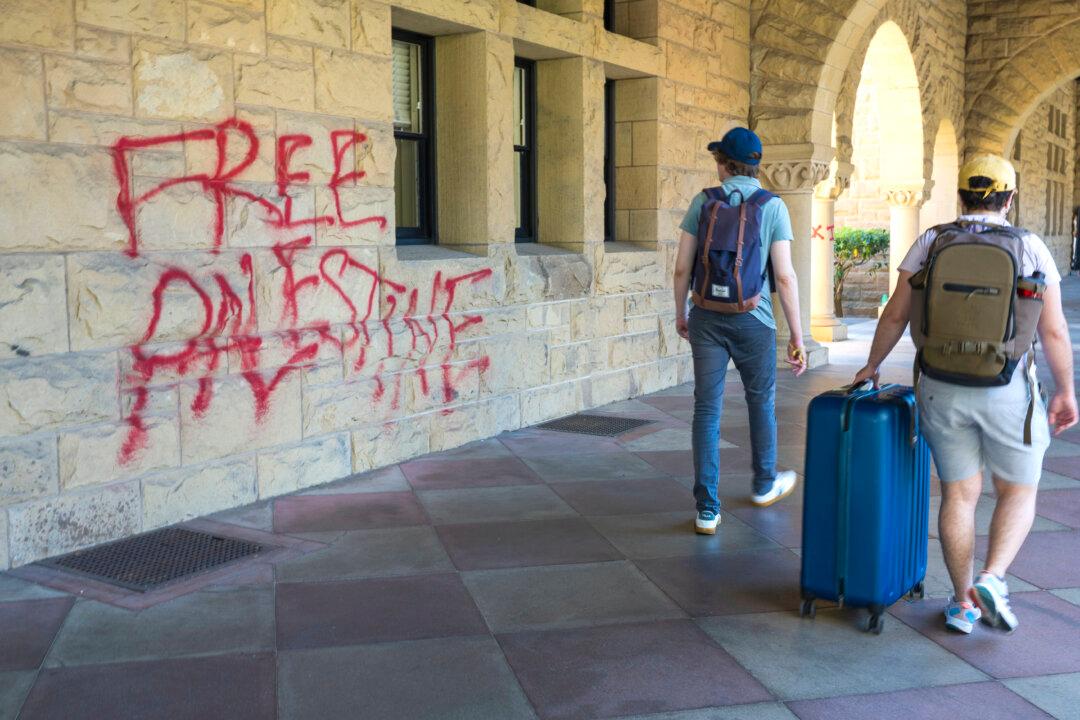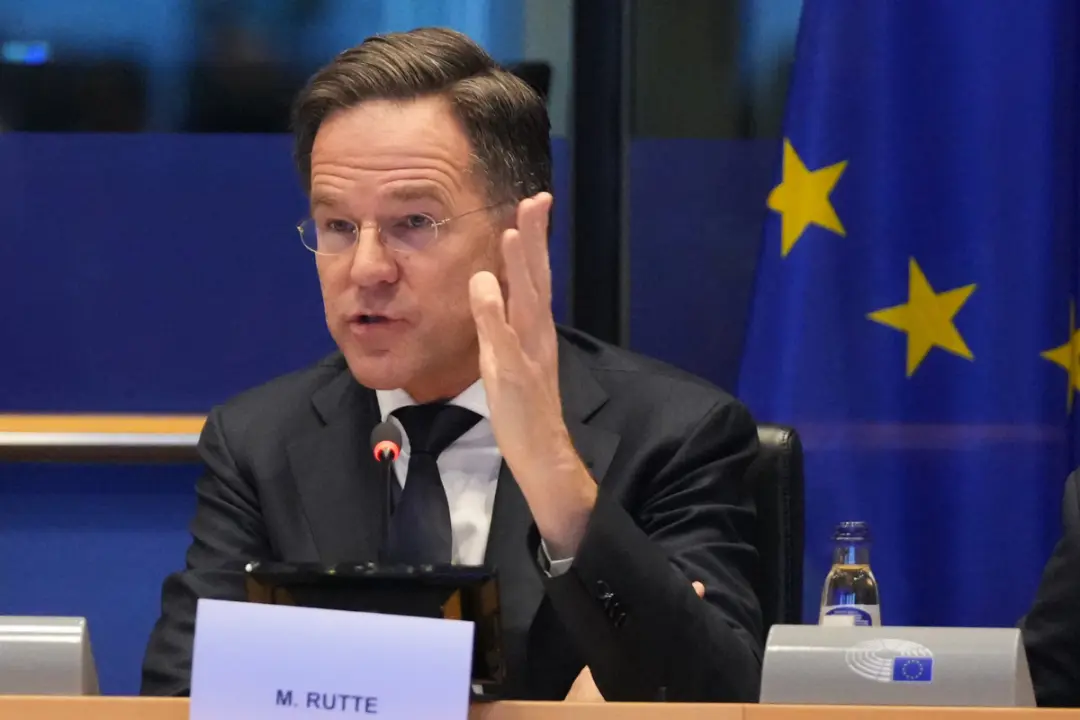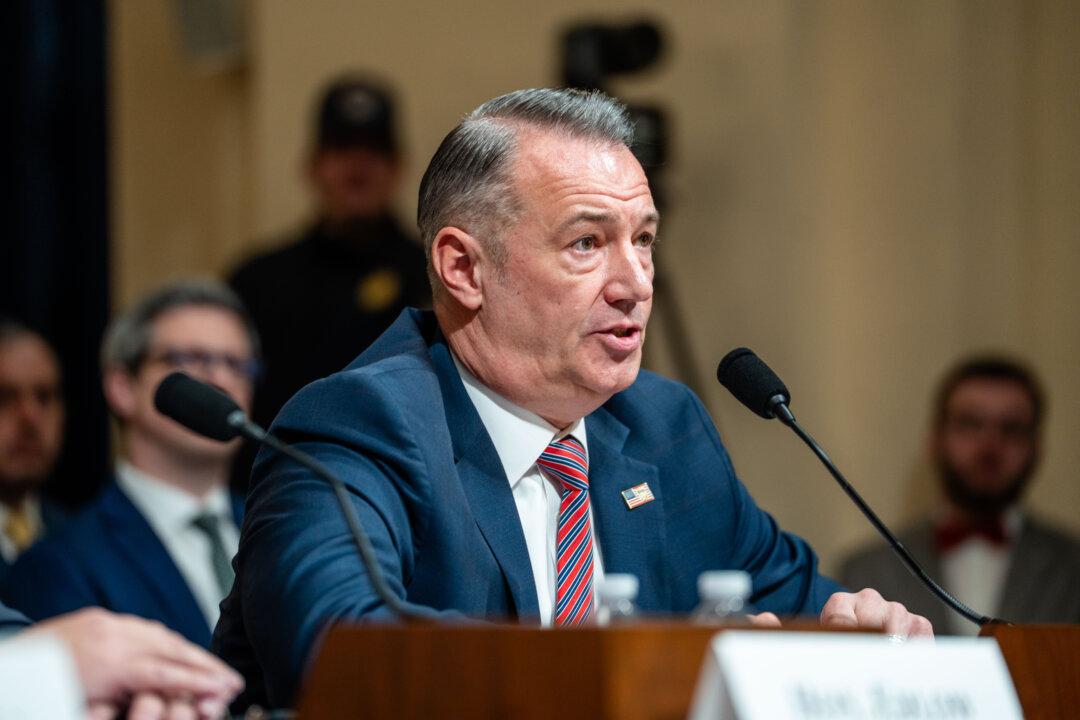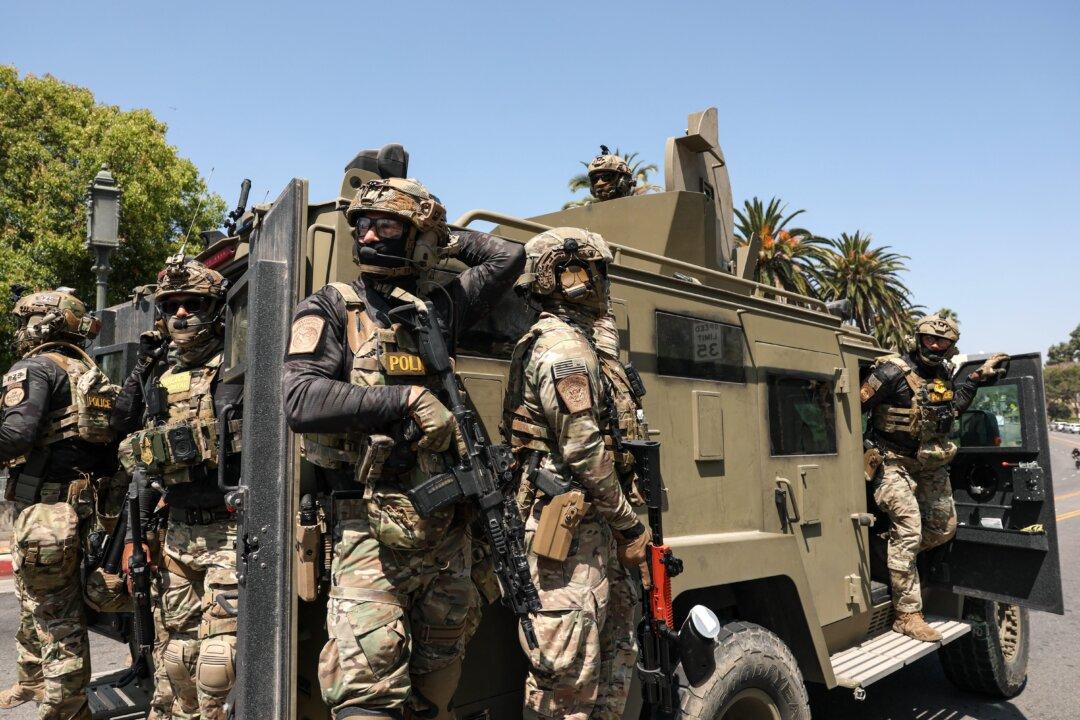No overnight camping, no face coverings, and no disrupting classes: Those are three new rules student protesters face this fall at Stanford University after pro-Palestinian rallies last spring resulted in several arrests.
The university, a private institution about 35 miles south of San Francisco, sent students an email announcing the new guidelines six days before classes started at the campus, according to the school newspaper, The Stanford Daily.





